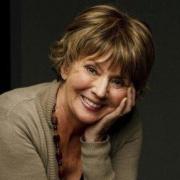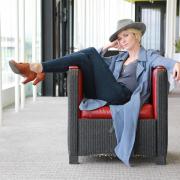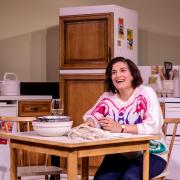We profile the richest and most successful people connected with Lancashire, from royalty to rock stars

The Duke of Westminster, proud owner of the Abbeystead estate in the Trough of Bowland and the increasingly successful Liverpool One shopping centre, comes out on top of the Lancashire Life 2013 Wealth List.

The Duke, with an £8billion family fortune, tops the 30 richest in the palatine county of Lancashire we have identified. Collectively the 30 are worth £24.5billion this year. up 40% on last year’s total of £17.5billion. But Westminster, whose fortune has moved up just 8.8% in the last year, is not the main reason for the impressive jump.
Lancastrian entrepreneurs are doing so well that their wealth has risen sharply. Take Tom Morris and the Arora brothers, who run rival Merseyside-based discount store chains. Last year they were together worth over £1100m. This year on the back of soaring profits and smart deals, they are 109% richer at £2320m. But remember their success is also good for all of us. In the last five years, for example, Morris’s Home Bargains has more than doubled its workforce to around 8,000.
Then there is new entry Peter Hargreaves. The Clitheroe-born financial services entrepreneur, a new entry this year, has seen his wealth soar to £1600m as the shares of his Hargreaves Lansdown financial services group soar.
The Queen is also a new entry to our ranks this year on the back of her ownership of the £428m Duchy of Lancaster, which owns a considerable amount of land and property in the county including Lancaster Castle. The recent birth of Prince George, now third in line to the throne, has also increased hopes that the Dukedom of Lancaster may be conferred on him, some 600 years after Henry V was the last holder of the title.
Retailing and property are where the fortunes are made today. But we also have six industrialists, including Geoffrey Halstead and the Sheppard family, both of whom have developed strong niche businesses in flooring and recycling. These are the sort of niche operators who are vital to rebalance the British economy and drive forward what is still a pretty fragile economic recovery. All power to their owners for taking them through the current economic storms in such fine fettle.
Lancashire’s old aristocrats and landowners, aside from Westminster, just do not have the acres or art to make it to our top 30. And while we have the old Beatles - Sir Paul McCartney and Ringo Starr, they really represent the old generation of rockers. No younger rock or pop stars have yet to make enough to break into our ranks.
The North West is of course filled with super-rich football stars, such as Wayne Rooney or other of his Manchester United team-mates, their wealth does not yet stack up enough to grab a place in our rankings. Their club owners, the Glazer family or Sheikh Mansour of Manchester United and City respectively, would be high up in the list but they do not qualify as they are not based here and have only tenuous roots with the county outside the club ownership.
The Duke of Westminster
Property
£8,000m
The Duke of Westminster’s 23,500 acre Abbeystead estate in the beautiful Trough of Bowland, could soon be in the eye of a political storm over the hugely controversial issue of fracking. This new technology for extracting gas has led to protests up and down Britain over environmental concerns. Westminster, whose family trusts bought Abbeystead in 1980, will not be immune if the drilling rigs appear on his land. Despite this. his other business interests are firing on all cylinders. His Grosvenor Group reported a £354.4m profit in 2012, while its net assets rose to nearly £3.1 billion. Grosvenor has been managing land in the capital since 1677 and owns 300 acres of Belgravia and Mayfair and much of Oxford Street. All of the Grosvenor Group shares are owned by the trustees of various Grosvenor trusts set up for the benefit of the Grosvenor family. Westminster stood down as chairman of the board in 2007 after 33 years. He has had a distinguished military career and from 2011 to 2012 he was deputy commander Land Forces (reserves) but has now retired to concentrate on a rehabilitation centre at Stanford Hall, Nottinghamshire, for military personnel, which is expected to open in 2018. He is leading the refurbishment programme at the Grade II listed £6.25million mansion which he has donated to the nation. With the private estates outside the Grosvenor group added to his assets there, and with the top end of the London housing market holding up well, we raise our overall valuation of Westminster slightly to £8billion this year.
John Whittaker
Property
£2,300m
The North West’s leading property entrepreneur, John Whittaker has a reputation as a tough but very shrewd operator. But there is a strong sense of history and love of his Lancashire roots in the man whose Peel company gave us the Trafford centre and is planning huge developments along the Mersey waterfront. In a rare recent interview, he pointed out ‘Whichever office we’ve been in, we’ve been able to see it,’ gesturing towards a hill in the distance in Ramsbottom, on which stands the Peel Tower. The monument was built to honour another local boy made good - Sir Robert Peel, founder of the modern police force and former prime minister. ‘I was born right underneath that tower on a little farm. I woke up every morning and the tower was looking down on us and it became the tower of strength. At seven years of age, mother sent me to a monastic upbringing at Prior Park College in Bath. And I wrote home and said “Dear Mum and Dad, as I look out of the window, the sun is shining, but it’s not shining for me and I can’t see the tower on the hill” not knowing that 22 years later I would buy Peel.’ From those early days Whittaker has built a £3billion plus property empire, and his own stake is worth perhaps £2.3 billion.
Peter Hargreaves
Finance
£1,600m
Known as a plain speaking Lancastrian, Peter Hargreaves was educated at Clitheroe’s Royal Grammar School, after which he became a chartered accountant in 1970. He went on to work for KPMG, Unisys and Whitbread before launching his own business Hargreaves Lansdown in 1981. The Bristol-based financial adviser floated on the stock market in 2007. Hargreaves stepped down as chief executive in 2010 but remains on the board with a £1.45billion stake in the £4.5 billion business. Past share sales and dividends take Hargreaves to £1.6billion.
Tom Morris and family
Retailing
£1,220m
Liverpool-based discount retailer Home Bargains was started by Tom Morris who opened his first store in 1976. TJ Morris, the parent company for Home Bargains, produced a record £84.2m profit on £915m sales in 2011-12. Morris and his family own the £1.2billion operation. Other assets add £20m.
Lord Grantchester and the Moores family
Retailing
£1,200m
Labour peer Lord Grantchester is the grandson of the late Sir John Moores, founder of the football pools in 1923. The family later branched out from the pools into mail order and retailing. The family sold some stores in 1998 and the pools side of the business in 2000; those proceeds and past dividends are worth £445m. But another windfall came in 2002 when the remaining department stores and mail order operation were sold for £750m. In all the family should still be worth perhaps £1200m after-tax and charitable work.
Simon, Bobby and Robin Arora
Retailing
£1,100m
The Arora brothers recently sold a stake in their fast-growing discount retailer B&M Retail in a deal which valued the Mersyeside-based business at £965m. It was in 2005 that Simon and Bobby Arora took over the then struggling B&M Retail, which was based in Blackpool at the time. Since then sales have shot up from around £65m to over £1billion. The pair, joined by younger brother Robin, have also been adept at snapping up premises from struggling competitors. They plan to expand B&M into Europe and may float the operation on the stock market. It helps that they have secured a top notch chairman in ex-Tesco boss, that true Liverpudlian (and fanatical Everton fan) Sir Terry Leahy. Other assets and property take the Aroras to £1.1billion.
Robin Sheppard and family
Industry
£1,040m
Liverpool-based European Metal Recycling pushed its turnover past £3billion in 2011 but its profits fell to £116m as economic uncertainty took its toll on the leading waste management group. The Sheppard family, led by Robin Sheppard, owns the £1billion operation and we add £40m for other assets.
Fred and Peter Done
Leisure
£850m
Bookmaker Betfred boss Fred Done is a fanatical Manchester United fan. The Salford-born entrepreneur and his brother Peter started out as a bookie’s runners for their father. From a single betting shop in 1967, the pair now own what has become one of the largest bookies chain in Britain. In 2011 Betfred took over the Tote for £265m. The brothers also have interests ranging from legal services to insurance, sports promotion, property and a restaurant. The three main but separate Done companies, together made around £31m profit on £4.6billion sales in 2011-12. With past dividends etc, the Dones are worth £850m
Peter Green and family
Leisure
£725m
The son of a Manchester draper and grocery retailer, Green married Canadian industrial heiress Mary-Jean Mitchel in the mid-1970s. She died of cancer in 1990 leaving Green running the family business with their two sons. In 1996, much of the family’s Canadian huge mining operations were sold in a £300m deal. Further lucrative deals in energy, gas and luxury hotels plus family properties world-wide take Green and his family to £725m easily.
Sir Paul McCartney (and Nancy Shevell)
Music and transport
£680m
It is 50 years since Beatlemania broke out in America, yet at 71 Sir Paul McCartney, one of the two surviving members of the most popular band in history, continues to tour and play before vast audiences as if he was still a fresh-faced 21-year-old from Liverpool. Aside from starring roles at the Queen’s Diamond Jubilee and the Closing Ceremony for the London Olympics, the former Beatle’s “On the Run” tour grossed $57m from 18 dates before a total of 417,000 people in 2012. This year he is touring the States again and will play his first concerts in Japan in more than 10 years. The ex-Beatle famously spent a nine-day ordeal in a Japanese prison cell in 1980 after he was arrested for carrying marijuana. Now 23 years later, Sir Paul will play five dates - three in Tokyo and the others in Osaka and Fukuoka - in November. The touring income accruing to McCartney in recent years helps push his wealth to £530m. We add £150m for the share of his wife Nancy’s fortune derived from her father’s New England Motor Freight trucking operation, taking the couple to £680m.
Trevor Hemmings
Leisure
£610m
Leisure tycoon Hemmings has two passions: football and racing. His horse Ballabriggs won the 2011 Aintree Grand National, his second triumph in the great race. Hemmings has also bankrolled League One club Preston North End. Hemmings started out as a bricklayer’s apprentice in Leyland, later building his own housebuilding firm, selling it for £1.5m in the early 1970s to the late Sir Fred Pontin. Hemmings became his right hand man in the Pontins leisure operation. He later took over the business and sold it in 1989 for a hefty profit to Scottish & Newcastle. Hemmings had by then bought Littlewoods’ pools operation from the Moores family for £161m in 2000. His main holdings company, the Northern Trust Group, has £102m net assets and his pub group Trust Inns had £90.5m net assets, both in 2011-12. Hemmings is easily worth £610m.
The Walker family
Industry and football
£500m
The Walker family wealth dates back to after the war when the late Jack Walker’s father set up a sheet metal business in Blackburn with £80 capital. Walker took over the business with his brother Fred in 1951. The pair built it into a huge steel stockholder which they sold to the then British Steel for £330m in 1989. Best known as the Blackburn Rovers benefactor, Jack Walker took control of the club in 1991 and saw it win the premiership title in 1994-95 under manager Kenny Dalglish. Walker died in 2000 and the family involvement with the Rovers ended in 2010 when the club was sold for £23m. Extensive property interests and a small stake in cut-price airline take take the Walker family to £500m.
The Warburton family
Baking
£500m
Bolton-based Warburtons was founded in 1876 when two brothers, Thomas and George Warburton launched a small grocery. In 2012 the family-owned baker saw its profits rise from £16.3m £26.4m on nearly £524m sales. Hefty dividends should help take the Warburton family, which owns the business, to £500m after-tax and spending.
Lord Alliance and family
Retailing
£400m
Lord Alliance arrived in Manchester virtually penniless at the age of 17 from Iran and bought a Manchester mail order business in 1963 for £1.4m, and that formed the basis of his business empire. Today his family has a £351m stake in the N Brown clothing retailer. We add £49m for other assets.
Sir Michael Smurfit and family
Industry
£398m
St Helens-born Sir Michael Smurfit has made his fortune in Ireland through a giant packaging company, Smurfit Kappa, which he left in 2007. He still has a stake worth around £200m. His art collection and other investments take Smurfit and his family to £398m.
Henry Moser and family
Property
£350m
Manchester-based mortgage group Jerrold was co-founded in 1973 by Henry Moser who left school at 16 and worked as a trader on market stalls. Barclays Private Equity invested £113.5m for a 30% stake in 2006. The Moser family retains a 70% stake. Past dividends and any sale proceeds should take the Moser family to £350m.
Sir John Zochonis and family
Industry
£330m
PZ Cussons was founded by two Greek entrepreneurs in 1884 to trade with Nigeria. Cussons, the maker of Imperial Leather was acquired in 1975. Zochonis is the great-nephew of one of the co-founders. He joined the Manchester-based company in 1952 and took over as chairman in 1970. Now retired, he retains a £318m family stake. We only add £12m for past dividends as he is a huge benefactor of worthy causes.
The Queen
Land
£320m
For only the second time in the often bloody, and more recently glorious, thousand year history of the British monarchy, there are now four generations of royalty alive with the recent arrival of Prince George. It was Queen Victoria - at the end of her long and illustrious reign - who was the last monarch to know her heirs for the following three generations. Now the Queen can relax at Balmoral for her summer holiday secure in the knowledge that an unbroken line of succession will be there until the start of the 22nd century. Lancastrians will also want to know whether, in due course, Prince George may acquire the title Duke of Lancaster. Certainly the Queen’s links with the red rose county are strong - she has the Duchy of Lancaster in her portfolio. Founded by Henry VI in 1399, the Duchy owns the Savoy estate in London as well as substantial holdings in Lancashire and Yorkshire. Its net value rose last year to £428m. In all the Queen’s personal property, her share portfolio and private estates such as Sandringham and Balmoral easily take her to £320m.
Philip Day
Retailing
£300m
Upmarket clothing chain Edinburgh Woollen Mill is run and owned by Carlisle-based Day, an experienced retail entrepreneur . The company is worth £250m and we add £50m for other assets.
Sir Michael Bibby and family
Transport and finance
£264m
Bibby Line Group, the old-established Liverpool shipping line, now 204 years old, has diversified into other areas such as debt factoring, financial services and food distribution. Sir Michael Bibby is the sixth generation to head the £300m business and his family stake and other assets add up to £264m.
Geoffrey Halstead and family
Industry
£260m
Bury-based James Halstead makes vinyl tiles and motorbike accessories. Founded in 1915 by Geoffrey Halstead’s grandfather, it has performed strongly in recent years and the Halstead family and trusts have a stake worth around £234m. Past dividends and other assets should take the family to £260m.
Alan Lewis
Industry
£260m
Born in Old Traffford in Manchester, Alan Lewis left school at 15 and studied typography at Manchester University. He started out selling repossessed cars and then developing old garage sites. His fortune has been made mainly from restructuring property and finances. In the late 70s he put his money into depressed UK and Spanish property. In 1982 he won a prolonged takeover battle for Illingworth Morris, a textile company owned by the wife of actor James Mason. He has also co-invested in Russian mills and property while he has 4,000 acres of prime development land in Florida, where gas has been discovered. Lewis, now helping to mentor budding entrepreneurs in the north, is worth a conservative £260m.
Sir Peter Ogden
Computers
£250m
Born and brought up in Rochdale, Sir Peter Ogden went to the local grammar school and after university and a career in finance, he co-founded the computer group Computacenter in 1981. It floated on the stock market in 1998 and Ogden’s stake is now worth £187m. He gave £25m to fund bright students from poor backgrounds at some of the leading independent schools, many coming from Lancashire. With his other investments, Ogden is worth £250m.
Anthony Green and family
Industry
£200m
Manchester-based PZ Cussons is best known for its Imperial leather soap. Anthony Green, the former chairman retired in 2010. His family stake and past dividends in the company are worth around £200m.
Judy Halewood and family
Retailing
£185m
Liverpool-based Halewood International was founded in 1978 by the late John Halewood, nicknamed “Mr Lambrini” after the iconic sparkling wine he launched. He died in 2011 and his family pledged to keep the £150m drinks business in family control. His partner Judy immediately took over as chairwoman of the business. Other assets take the wider family to £185m.
Ringo Starr
Music
£160m
After releasing his ‘Ringo 2012’ album, Starr went on a summer North American Tour with his All Starr band, which grossed $4.2m from around 20 gigs with around 3000 at each show. The former Beatles drummer repeated this in early 2013 on a 10 date tour of the Pacific Rim. He will no doubt be pleased that his pension was secured in 2009 with launch of the whole Beatles catalogue re-mastered and re-packaged for the first time since 1987 in tandem with the music video game Beatles-Rock Band. Then late in 2010 Apple/EMI finally released the bulk of the band’s catalogue for digital downloads via an exclusive deal with iTunes. Starr’s share of past revenues and touring income take him to £160m.
Dave Whelan and family
Football
£160m
A fine full back for Blackburn Rovers, Whelan played in the 1960 Cup Final but broke his leg and did not play for the club again. He later turned himself into a successful entrepreneur and built the JJB sports retailer, making £190m in its 2007 sale. Whelan bought Wigan Football Club in 1995 and built the new DW stadium for £25m. His triumph came in May this year when Wigan won the FA Cup, only to be relegated from the premiership a week later. In 2011 he converted loans to shares, and in effect wrote off £48m he had put into Wigan. Whelan now has a very profitable fitness chain and despite the hefty Wigan investment, should now be worth £160m.
Kenneth Townsley
Leisure
£118m
Kenneth Townsley started out in travel aged 15 in 1961 and used a redundancy payout to set up the Gold Medal business in a rented Blackpool shop. By 2009 he had sold up netting £84m. Property and other assets take take him to £118m.
Doreen Lofthouse and family
Lozenges
£95m
Fisherman’s Friends, the super-strong lozenges, were concocted by a Fleetwood chemist, James Lofthouse, in 1865 as an aid to local fishermen who braved freezing conditions. Still owned by the Lofthouse family, led by the formidable Doreen, the brand was valued at £175m in the boom years. We are more cautious and settle for £80m today. Past dividends etc add £15m.
Martin Edwards
Football
£90m
Martin Edwards took over as Manchester United chairman from his late father in 1980 and held the job for 23 years. He sold his shares in United over the years netting £120m in total. He has two small property companies today and should be worth £90m after-tax.



























